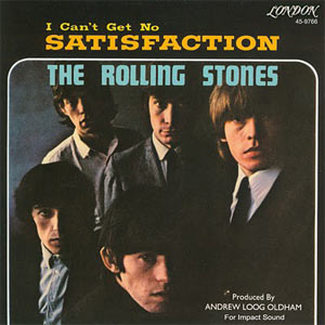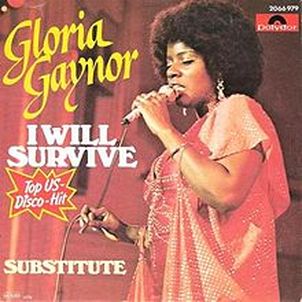
In a recent study conducted by RAND Health, “Factors Affecting Physician Professional Satisfaction and Their Implications for Patient Care, Health Systems, and Health Policy,” I think it’s no surprise to most EHR users that EHRs were listed among those factors, and, dare I say it, meaningful use was listed as well.
But that’s not to say that EHRs and meaningful use were only listed as adherences to professional satisfaction; in fact, the study shed some light on how physicians would like to see both EHRs and government programs improved.
The study, commissioned by the American Medical Association, is being used as part of the group’s objective to “advance health care delivery and payment models that enable high-quality, affordable care and restore and preserve physician satisfaction.” The hope in seeking such change is to produce a better health care system with highly motivated physicians. RAND sought to “identify high-priority determinants of professional satisfaction,” especially as more physicians are becoming affiliated with hospitals and larger delivery systems. The data was gathered from 30 physician practices in six states using both surveys and interviews. Notably, researchers discovered that physicians who considered themselves or practices as providing high-quality care reported better professional satisfaction. Primary care physicians in particular were most frustrated when “demands for greater quantity of care” cut down on the time spent with patients, and in some cases, distracted them from delivering the quality of care being measured.
Listed as both “promising” and “frustrating,” the major concerns about electronic health records were interoperability between systems and the amount of provider time involved in data entry. Physicians surveyed liked the “idea” of an EHR but the “cons” of current systems far outweighed the “pros”:
Pros
Cons
In addition to EHRs, another source of frustration for physicians was the cumulative burden of regulations, and, at the time of the study, had “meaningful use" rules for EHRs topping the list.
Although the AMA’s intent for the RAND study is commendable, the study probably didn’t reveal anything too new for current users of EHRs or participants in the meaningful use incentive pro- gram. Perhaps, however, if the study is placed in the hands of those persons designing or implementing EHRs or writing or passing laws concerning the use of EHRs, the study may prove useful, namely concerning the recommendations made about improving professional satisfaction. Recommendations of the study specifically concerning EHRs and regulations included the following:
1. Better EHR usability should be an industry-wide priority and a precondition for EHR certification.
2. Reducing the cumulative burden of rules and regulations may improve professional satisfaction and enhance physicians' ability to focus on patient care.
So, until these recommendations are implemented, what should physicians and healthcare providers do to improve their current situation? I would first recommend a change of tune.
If you’ve been humming along to the Rolling Stones,
And he’s tellin’ me more and more
About some useless information,
Supposed to fire my imagination.
I can’t get no, oh no, no, no,
Hey, hey, hey, that's what I say.
I can't get no satisfaction.
I can't get no satisfaction.
Cause I try and I try and I try.....
But that’s not to say that EHRs and meaningful use were only listed as adherences to professional satisfaction; in fact, the study shed some light on how physicians would like to see both EHRs and government programs improved.
The study, commissioned by the American Medical Association, is being used as part of the group’s objective to “advance health care delivery and payment models that enable high-quality, affordable care and restore and preserve physician satisfaction.” The hope in seeking such change is to produce a better health care system with highly motivated physicians. RAND sought to “identify high-priority determinants of professional satisfaction,” especially as more physicians are becoming affiliated with hospitals and larger delivery systems. The data was gathered from 30 physician practices in six states using both surveys and interviews. Notably, researchers discovered that physicians who considered themselves or practices as providing high-quality care reported better professional satisfaction. Primary care physicians in particular were most frustrated when “demands for greater quantity of care” cut down on the time spent with patients, and in some cases, distracted them from delivering the quality of care being measured.
Listed as both “promising” and “frustrating,” the major concerns about electronic health records were interoperability between systems and the amount of provider time involved in data entry. Physicians surveyed liked the “idea” of an EHR but the “cons” of current systems far outweighed the “pros”:
Pros
- accessibility to patient records
- improvements in quality of care
Cons
- poor usability,
- time-consuming data entry,
- interference with face-to-face patient care,
- inefficient and less fulfilling work content (creativity),
- inability to exchange health information,
- degradation (damaging ) of clinical documentation.
In addition to EHRs, another source of frustration for physicians was the cumulative burden of regulations, and, at the time of the study, had “meaningful use" rules for EHRs topping the list.
Although the AMA’s intent for the RAND study is commendable, the study probably didn’t reveal anything too new for current users of EHRs or participants in the meaningful use incentive pro- gram. Perhaps, however, if the study is placed in the hands of those persons designing or implementing EHRs or writing or passing laws concerning the use of EHRs, the study may prove useful, namely concerning the recommendations made about improving professional satisfaction. Recommendations of the study specifically concerning EHRs and regulations included the following:
1. Better EHR usability should be an industry-wide priority and a precondition for EHR certification.
2. Reducing the cumulative burden of rules and regulations may improve professional satisfaction and enhance physicians' ability to focus on patient care.
So, until these recommendations are implemented, what should physicians and healthcare providers do to improve their current situation? I would first recommend a change of tune.
If you’ve been humming along to the Rolling Stones,
And he’s tellin’ me more and more
About some useless information,
Supposed to fire my imagination.
I can’t get no, oh no, no, no,
Hey, hey, hey, that's what I say.
I can't get no satisfaction.
I can't get no satisfaction.
Cause I try and I try and I try.....

How about a different song?
At first, I was afraid, I was petrified
Kept thinking, I could never live without paper charts by my side.
But then I spent so many nights thinking, how you did me wrong,
And I grew strong, and I learned how to get along with the EHR.
It took all the strength I had not to fall apart.
Kept trying hard to mend the pieces of my broken chart,
And I spent, oh, so many nights just feeling sorry for myself.
I used to cry, but now I hold my head up high,
And you see me, somebody new!
I'm not that chained up little person still in love with paper charts.
Oh, no, not I, I will survive!
Oh, as long as I know how to click, I know I'll stay alive.
I've got all my life to click, I've got all my knowledge to give.
And I'll survive, I will survive, I will survive!
(Adapted from Gloria Gaynor’s I Will Survive.)
At first, I was afraid, I was petrified
Kept thinking, I could never live without paper charts by my side.
But then I spent so many nights thinking, how you did me wrong,
And I grew strong, and I learned how to get along with the EHR.
It took all the strength I had not to fall apart.
Kept trying hard to mend the pieces of my broken chart,
And I spent, oh, so many nights just feeling sorry for myself.
I used to cry, but now I hold my head up high,
And you see me, somebody new!
I'm not that chained up little person still in love with paper charts.
Oh, no, not I, I will survive!
Oh, as long as I know how to click, I know I'll stay alive.
I've got all my life to click, I've got all my knowledge to give.
And I'll survive, I will survive, I will survive!
(Adapted from Gloria Gaynor’s I Will Survive.)
 RSS Feed
RSS Feed